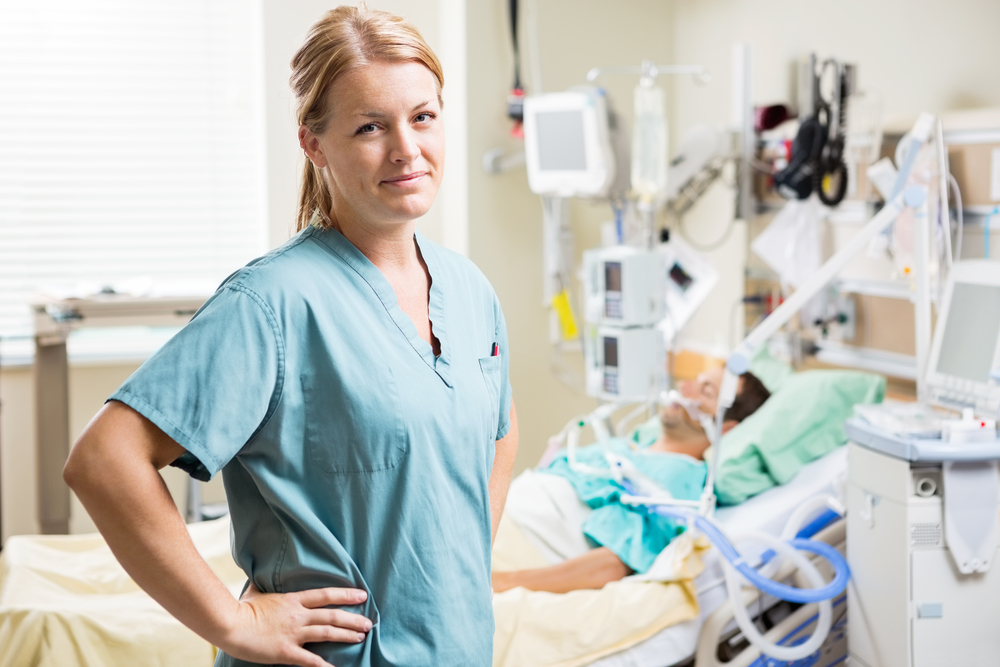
Celebrating research driven by nurses
May 2020
As the Emergency Medicine Foundation (EMF) strives to revolutionise healthcare, the outstanding contributions, impact and influence of nurses driving world-leading research is growing.
The EMF nurtures clinician-researchers by funding emergency healthcare research programs and supporting research capacity building initiatives that improve patient care and clinician training.
Through this work, we are proud to support a growing number of emergency nurse practitioners with a passion for high-quality research.
Supporting the emergency workforce
One leading nurse who drives and champions emergency medicine research is Professor Julia Crilly. Julia is a Professor of Emergency Care, respected researcher, educator and mentor. She spoke about her commitment to research in this podcast.
Julia’s research focuses on innovative emergency care service delivery for vulnerable people. This includes an investigation of 24-hour emergency nursing care for people held in police watch houses, a project developed following the recommendations of a 2012 coronial inquiry into a death in custody.
With a passion for emergency workforce improvements, Julia has been a driving force behind research projects that enable clinicians and students to be mentored. She also worked on an Evaluation of the Emergency Department Ambulance Offload Nurse (EDAOLN), which is expected to guide future decision making, policy and processes.
Emergency nurses are also contributing to the professional development of their colleagues and future nurses. The work of two Brisbane emergency department (ED) nurses, Sharyn Plath and Mary Wright, led to a successful in-house model for training emergency nurse practitioner candidates, with outcomes published in the Australasian Emergency Nursing Journal.
The EMF is committed to fostering research cultures in Queensland public hospital emergency departments through its research capacity building grants. Numerous hospitals have benefited, including the Royal Brisbane and Women’s Hospital which appointed Dr James Hughes an Early Career Researcher with an interest in the care of ED patients presenting in pain.
Since James was appointed, research among nursing and allied health clinicians has been renewed, with increased collaboration across disciplines, more manuscripts published and presented, and growing collaborations with major research centres, universities, other hospitals, the CSIRO, Qld Ambulance Service and Pathology Qld.
There are other ways nurses are helping to support fellow hospital and healthcare staff through research. Emergency nurse practitioner and PhD candidate Hui (Grace) Xu is exploring the role of technology in helping ED staff to cope better with occupational stress.
Grace is currently engaged in testing a mindfulness program delivered by a smartphone app as part of her research, as featured in this recent TV news story. An advocate for maintaining mental health and wellbeing, Grace also contributed tips to help hospital and healthcare workers cope with increased stress and pressure.
Improving care for our smallest patients
Numerous paediatric emergency nurse practitioners are also actively driving innovative projects to improve outcomes for our smallest and most vulnerable patients.
Emergency nurse Amanda Harley has specialised expertise in paediatric sepsis, a devastating infection that kills more children in Australia than road accidents. As the nation’s first dedicated paediatric sepsis Clinical Nurse Consultant, Amanda educates Queensland hospital staff about detecting and treating the condition, and is assessing the ways in which parental concern can improve sepsis recognition in children to help save lives.
In 2018, the EMF’s Rural and Remote grant was awarded to Weipa Integrated Health Service Clinical Nurse, Sally West to investigate the use of nasal high flow therapy to treat babies with bronchiolitis in remote hospitals and health centres.
Bronchiolitis is a common respiratory illness in babies, and affects remote Indigenous Australians at a higher rate. Through her project, Sally hopes to improve outcomes for Indigenous Australian babies in the Cape.
Trauma Research Coordinator Liz Wake is driving the Fibrinogen Early In Severe Trauma in children study (FEISTY) including FEISTY Junior. With traumatic injuries a leading cause of childhood death and disability, the trial will enrol patients with severe bleeding admitted to paediatric trauma centres, to better understand the administration of fibrinogen, one of the key clotting factors that need to be replaced.
Fellow nurse Brooke Charters is leading the Paediatric Reduction in Emergency Cannula Accidental REmoval or PRECARE trial. Brooke spoke to the EMF in this video about her goal to help reduce fear in young patients, while ensuring a better treatment experience and outcomes.
Preparing emergency departments for disaster
With the Covid-19 pandemic highlighting the role of preparedness and resilience in emergency healthcare environments, the work of emergency nurse Sarah Weber is more important than ever.
Sarah has been an emergency nurse since 2003, starting out in Alice Springs, rural and remote locations, and corrections environments before joining a Brisbane hospital emergency department. Drawing on vast experience in disaster management, Sarah is investigating the capacity of Australian emergency departments to respond to chemical, biological, radiological, nuclear, and explosive disasters.
Thank you to these and all nurses, whose contributions to healthcare and the community can never be overstated.
SHARE



